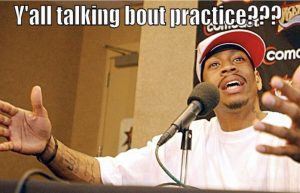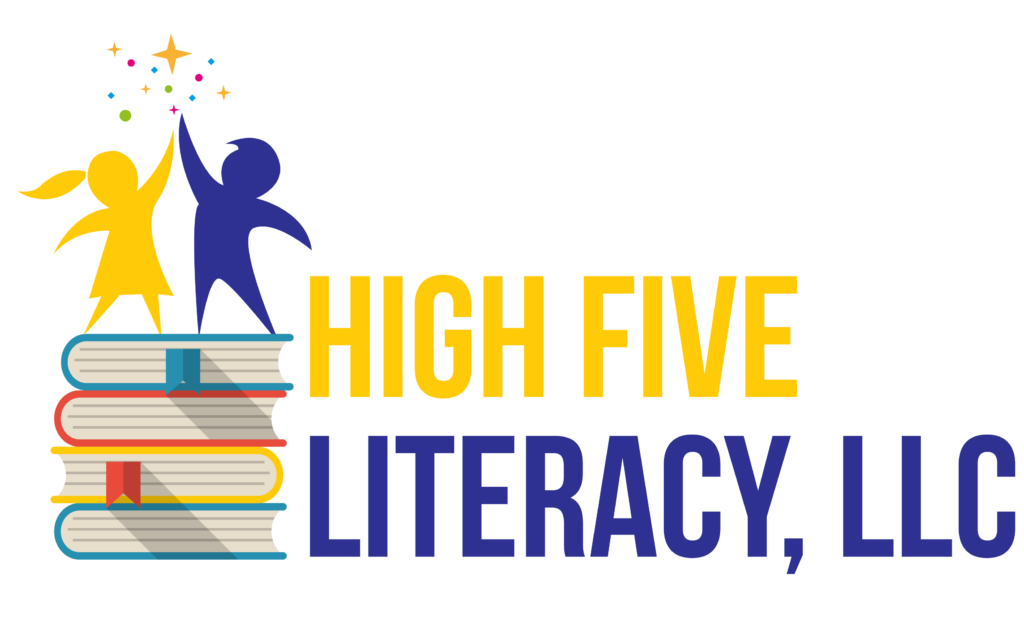 “We’re talking about practice! We’re talking about practice! We ain’t talking about the game.” Allen Iverson, dropped the P word 22 times in a press conference given sixteen years ago, apparently annoyed that he had to answer questions about his effort in practice after a lackluster game as the star basketball player on the Philadelphia 76ers. This famous rant is now legendary, according to my husband, as he quoted Iverson’s words as I was going off on my own little rant about how practice gets the short shrift.
“We’re talking about practice! We’re talking about practice! We ain’t talking about the game.” Allen Iverson, dropped the P word 22 times in a press conference given sixteen years ago, apparently annoyed that he had to answer questions about his effort in practice after a lackluster game as the star basketball player on the Philadelphia 76ers. This famous rant is now legendary, according to my husband, as he quoted Iverson’s words as I was going off on my own little rant about how practice gets the short shrift.
While Iverson and others might not appreciate the value of practice, there really is no substitute for it in any endeavor. None.
Children with dyslexia and other learning differences can only improve in reading through correct practice and feedback. In his groundbreaking 2009 book, Reading in the Brain: The New Science of How We Read, Stanislas Dehaene explained how learning to read changes the neural networks for vision and language. These cerebral changes can only occur by building new pathways through repetition of the basic skills in phonics decoding, phonemic awareness, and practice with decodable text. There are no shortcuts. The learner must do the daily work, and someone needs to ensure that the work is done correctly. Every day.
Reading proficiently requires that these foundational skills become automatic because conscious attention to decoding interferes with reading comprehension. The only way to become a fluent reader is through code-focused practice, the kind of word-work that pushes children to look through a word from left to right and see the same letter patterns matched to sounds again and again. Only when children begin to make these connections effortlessly will they be able to generalize and transfer their understanding to more difficult words. Opportunities to read often allow for self-teaching through practice. Accurate word recognition at the “speed of sight,” a term used in the title of Mark Seidenberg’s book, Language at the Speed of Sight, does not happen through memorization of whole words. Fluency occurs through a progression of skills. There is no magic pill. While typical readers can decode without intensive phonics training, the struggling reader needs many, many, more practice sessions. And this means more than they usually receive at school.
Interventions cannot possibly work well without practice. Even if there is a lot of information on the efficacy of an intervention, nothing changes without hard work. No challenge, no change. The most common barrier I see to successful outcomes for children is the lack of practice on targeted skills. One day off turns into another day, and that turns into a whole week without putting in the time to practice. Disciplined practice requires a routine in school and at home. When children return to me for their tutoring sessions, I can always see who has done the practice work and who has not. Those who have practiced move on; those who have not practiced need to review. Whether or not the child has a mild or severe disability, it doesn’t matter. Practice is the great equalizer. The important message for successful learning is practice. The key to all great accomplishments is practice.
Faith Borkowsky is the Founder of High Five Literacy and Academic Coaching with over thirty years of experience as a classroom teacher, reading/learning specialist, regional literacy coach, administrator, and tutor. Ms. Borkowsky is Orton-Gillingham trained and is a Wilson Certified Dyslexia Practitioner listed on the International Dyslexia Association’s Provider Directory. She provides professional development for teachers and school districts, as well as parent workshops, presentations, and private consultations.
Her book, Failing Students or Failing Schools? A Parent’s Guide to Reading Instruction and Intervention, is available on Barnes and Noble https://www.barnesandnoble.com/w/failing-students-or-failing-schools-faith-borkowsky/1128896546 and Amazon https://www.amazon.com/dp/1937615456/

1 Comment. Leave new
Great post, Faith!
People who are very good at what they do often disdain the idea that they got there by practicing on the kind of daily basis you are valorizing. Everything you say about the importance of practice is absolutely right!
K. Anders Ericsson, who wrote so much about this in The Cambridge Handbook of Expertise and Expert Performance, would be proud of you!
Best wishes,
John (Sounds-Write)